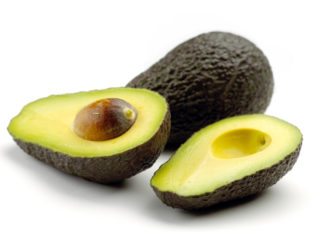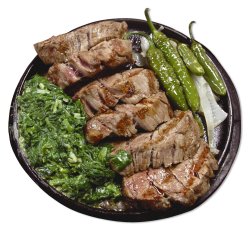
One of the B vitamins that plays the largest role in energy production in the body and is often termed the ‘energy vitamin’, is vitamin B12, also referred to as either cyanocobalamin or cobolamin. B vitamins are a class of water soluble vitamins, meaning that it’s imperative that you take them in on a daily basis otherwise you will suffer from deficiencies.
Unlike the fat soluble vitamins in the body that you can store and call upon when needed if not enough are consumed in the diet plan, water soluble vitamins are not stored. Instead, they’re excreted out on a daily basis whenever excess is taken in over and above your needs, so if you happen to fall short, that deficiency will very likely occur.
Let’s take a closer look at what vitamin B12 is all about so you can clearly see why getting enough of this will be a must to your long-term health promotion goals.
Vitamin B12 Food Sources

The top food sources that provide vitamin B12 include:
- Beef
- Cheese
- Crabs
- Cod
- Eggs
- Fish
- Lamb
- Liver
- Milk and milk products
- Organ meat
- Oyster
- Pork
- Shellfish
- Tuna
- Trout
- Yogurt
How to consume more vitamin B12
To help boost your intake of vitamin B12 rich foods, make sure that you’re including plenty of low-fat dairy products in your diet. Many people often cut dairy out from their diet, especially when they’re aiming for fat loss thinking this is a great way to improve their results, but in doing so miss out on many key nutrients the body needs.
Not only are dairy products going to be a rich source of vitamin B12, they’re also high in calcium which you need as well. Choose smart selections such as Greek yogurt, low fat, low sugar regular yogurt, low fat cottage cheese, as well as skim milk and you’ll be right on track to getting more of this nutrient into your diet.
How does vitamin B12 play a role in your body?
One of the biggest reasons why vitamin B12 is so largely involved in the energy process is because it’s going to play a key role in the production and maintenance of your red blood cells.
These are the cells in the body that will serve to transport oxygen to the respective tissues so when you aren’t getting enough, fatigue will set in. Oxygen is a requirement for ongoing movement so any time the muscles are without, high levels of fatigue will set in that will quickly cause all activity to cease.
In addition to its role in the red blood cell production, vitamin B12 is also going to be essential for stimulating your appetite, ensuring that you take in enough fuel on a daily basis. Those who have low appetite levels will be at a high risk for malnutrition, so this can really cause a number of other problems to take place in the body over time.
Vitamin B12 is going to play a role in the release of energy by the body as well, so that when you consume foods your body is able to immediately put the energy to use, fueling all the cells that need the glucose.
Vitamin B12 is also involved with maintaining a strong and quick mind, so is going to help to reduce the risk of mental deterioration and help to speed up the thought processes taking place.
Older individuals who do often notice mental decline with age can really benefit from making sure they are taking in sufficient levels of vitamin B12 because without it, they could start to see issues with good memory.
Finally, vitamin B12 is also going to play a role in the metabolism of proteins, fats, and carbohydrates, so will ensure that all the foods that you’re eating on a daily basis are being broken down properly.
Parts of the Body Affected:
- Red blood cells
- Energy levels
- Iron and folic acid utilization
- Nervous system
The Health Benefits of Vitamin B12

Many people have found that one of the key benefits of vitamin B12 is a very dramatic energy boost. As such, rather than relying on substances such as caffeine to get their energy intake up higher, they take a natural approach and supplement with vitamin B12 instead.
Another benefit of vitamin B12 that’s also been noted is that it can help to treat those who are suffering from allergies, clearing up the symptoms and helping them become less infected.
It can also provide some support to those who are suffering from infections by helping to speed up the healing process taking place.
Vitamin B12 Recommended Daily Amount
The daily recommendation for vitamin B12 is set at:
- 0-6 months: 0.4 mcg
- 7-12 months: 0.5 mcg
- 1-3 years: 0.9 mcg
- 4-8 years: 1.2 mcg
- 9-13 years: 1.8 mcg
- 14 years and over: 2.4 mcg
Vitamin B12 Deficiency Symptoms

Those who are not taking in sufficient levels of vitamin B12 on a daily basis either through their diet or with supplementation are likely to notice a number of different symptoms.
The top symptoms to be on the lookout for that will tend to develop rather quickly are:
- Sore tongue
- A feeling of weakness in the body
- High levels of fatigue
- Weight loss
- Also back pain and feelings of apathy
If the deficiency is left to go on long enough, you may also find that you have trouble maintaining good balance, especially during physical activity, and you may not be as ‘quick’ as you normally are. Your reflexes are quite impacted by low levels of vitamin B12 so this is something that can definitely decrease your quality of life.
Another major problem with not getting sufficient levels of vitamin B12 on a daily basis is that the level of homocysteine in the blood may become higher, which can put you at a risk for Alzheimer’s disease and is very toxic to the brain.
Some people with severe deficiencies will in time also start to experience an erosion of the myelin sheath which covers the nerves in the body, providing insulation.
Those who are maintaining a very strict vegetarian diet are much more likely to experience deficiencies of this nutrient so they especially will want to consider supplementation.
In addition to this, those who are consuming high quantities of alcohol may require more vitamin B12 than normal individuals, so they’ll want to look into increased dosages as well on the advice of a physician.
So there you have everything that you need to know about vitamin B12. It’s one nutrient that will play many key roles in the body and if you want to feel your best on a day to day basis, one that you can’t afford to miss out on.
Vitamin B9 – Folic Acid Foods, Benefits and Deficiency Symptoms




Be the first to comment